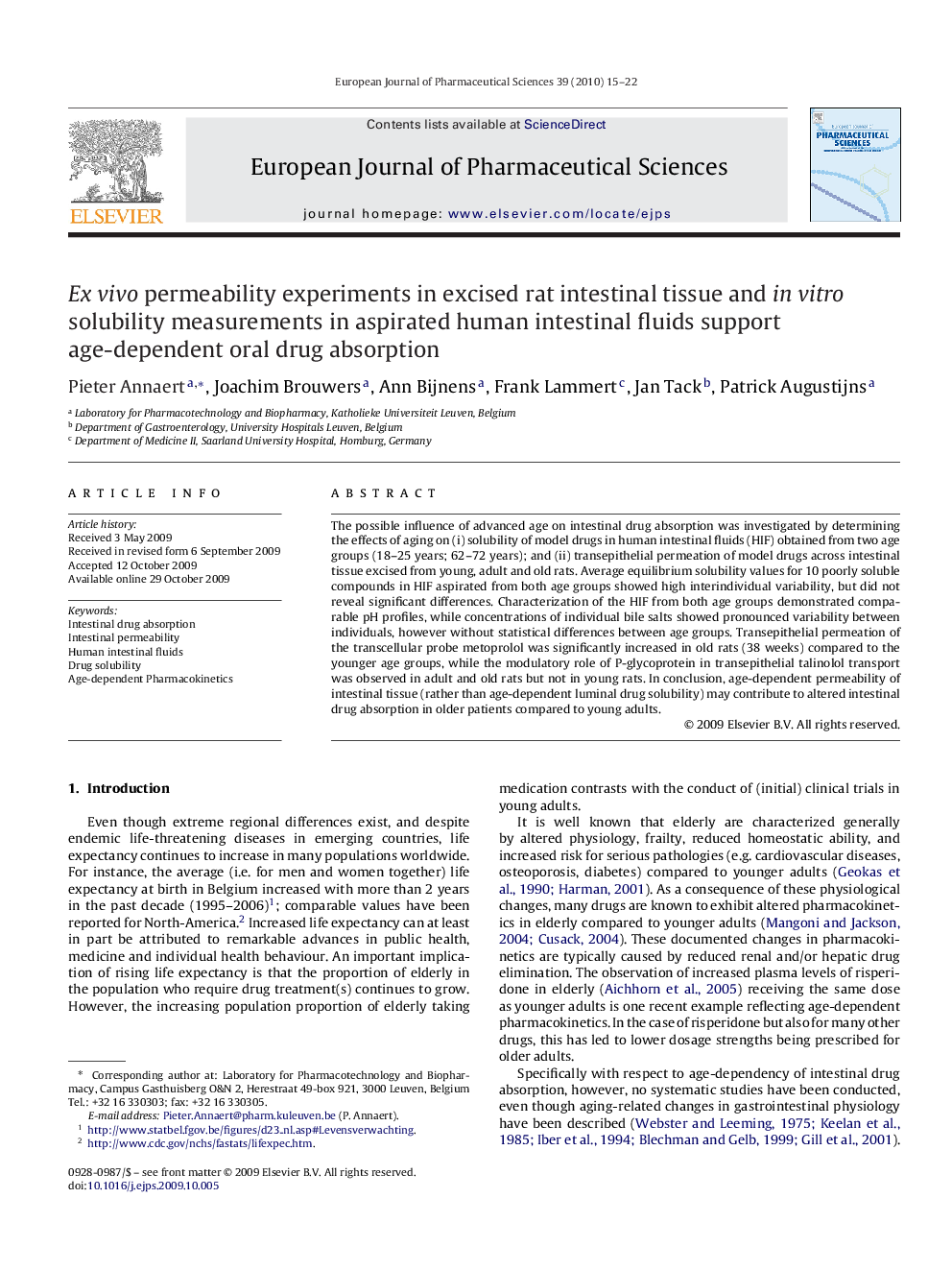| Article ID | Journal | Published Year | Pages | File Type |
|---|---|---|---|---|
| 2481470 | European Journal of Pharmaceutical Sciences | 2010 | 8 Pages |
The possible influence of advanced age on intestinal drug absorption was investigated by determining the effects of aging on (i) solubility of model drugs in human intestinal fluids (HIF) obtained from two age groups (18–25 years; 62–72 years); and (ii) transepithelial permeation of model drugs across intestinal tissue excised from young, adult and old rats. Average equilibrium solubility values for 10 poorly soluble compounds in HIF aspirated from both age groups showed high interindividual variability, but did not reveal significant differences. Characterization of the HIF from both age groups demonstrated comparable pH profiles, while concentrations of individual bile salts showed pronounced variability between individuals, however without statistical differences between age groups. Transepithelial permeation of the transcellular probe metoprolol was significantly increased in old rats (38 weeks) compared to the younger age groups, while the modulatory role of P-glycoprotein in transepithelial talinolol transport was observed in adult and old rats but not in young rats. In conclusion, age-dependent permeability of intestinal tissue (rather than age-dependent luminal drug solubility) may contribute to altered intestinal drug absorption in older patients compared to young adults.
